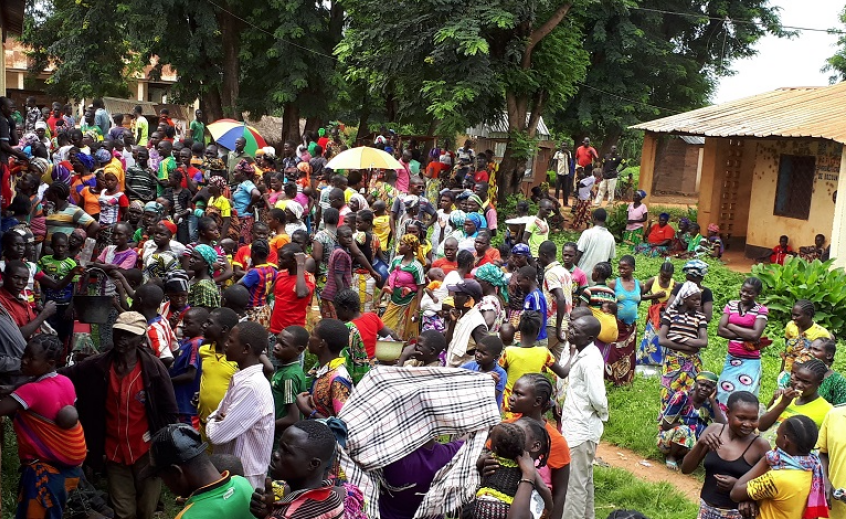Dozens of people are feared dead after suspected Islamist rebels attacked civilians in the Central African Republic earlier this month.
Sources contacted by World Watch Monitor say as many as 42 were killed in the attack on September 4-5, contradicting earlier reports that between 12 and 14 died.

World Watch Monitor's sources said the victims were mainly women, who were hacked to death while returning from their farms to the predominantly Christian quarter of Bria, in the centre of the country. The town is the location of PK3, the largest internally displaced persons (IDP) camp in the country.
Some of the victims had gunshot wounds, while others died of machete wounds. At least one was pregnant.
The massacre was attributed to members of the Popular Front for the Central African Renaissance (FPRC), one of the four factions of the now-disbanded Séléka rebel group active in Bria.
A week earlier, on August 29, three ex-Seleka groups, including the FPRC and one Anti-Balaka (vigilante) group led by Maxime Mokom, committed themselves to work for peace and political stability in CAR.
The agreement, known as The Khartoum Declaration of Understanding of the Central African Armed Groups, followed a two-day meeting for peace, brokered by Russia.
The meeting in the Sudanese capital took place at the same time as an official mediation effort led by the African Union (AU), with representatives of 14 armed groups, to finalise joint demands.
Despite the presence of UN peacekeepers, the town of Bria witnessed a wave of violence at the end of August following violent clashes between members of the FPRC and Anti-Balaka vigilantes. The movement of people, including humanitarian workers, is still very limited.
A number of incidents, including armed robberies, kidnappings and other type of attacks against civilians, have been reported and the Christian populations of the town said they had been particularly targeted.
'They [Seleka militants] don't want to see any Christians here,' one church leader said. 'They say all Christians are Anti-Balaka, so if you are caught, you are gone.'
He added: 'Christians never go to town. If they do, they are threatened, arrested, and asked to pay fines before they are released. There is no way to move to town. They have barricaded all roads, and if you venture out, you are at your own peril. We Christians have nothing else to do, no food to eat, no place to go. We rely only on prayers. Please pray for us!'
The Bria massacre took place only a few kilometres away from the headquarters of the MINUSCA UN peacekeeping force. On Friday September 7, protesters took the bodies of the victims to MINUSCA headquarters, accusing them of not doing enough to protect civilians. A local aid worker told World Watch Monitor that they had lost trust in UN troops, who 'tend to act as fire-fighters, waiting to count the death toll, despite the equipment – including aerial material – at their disposal'.













